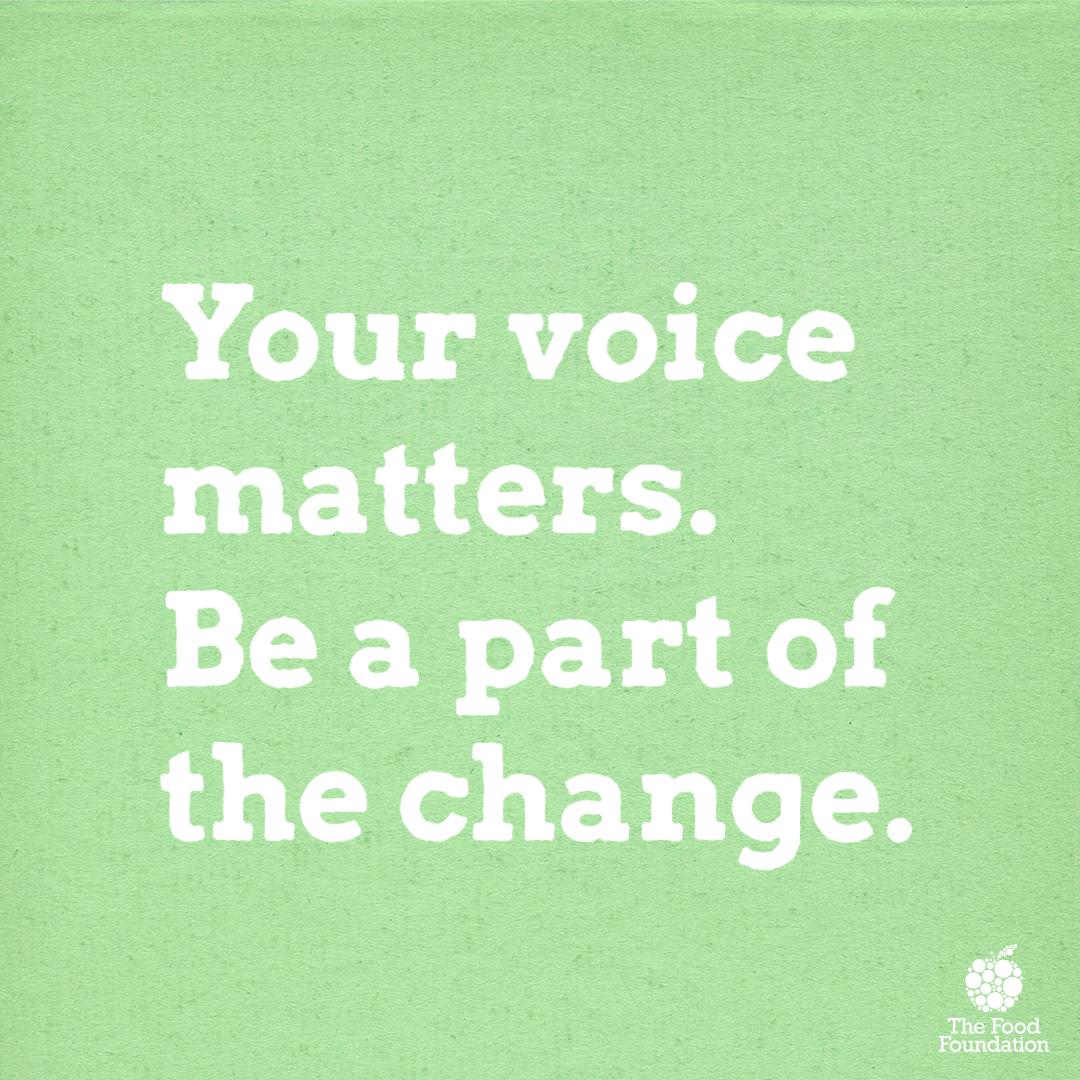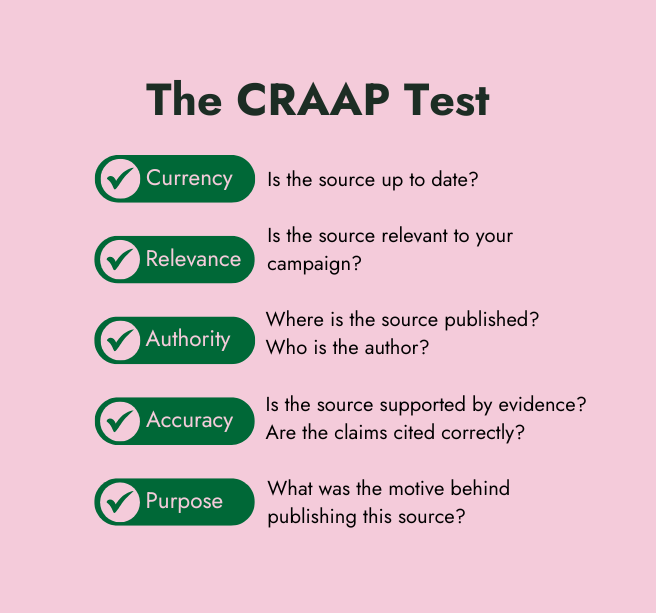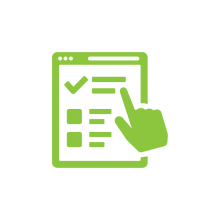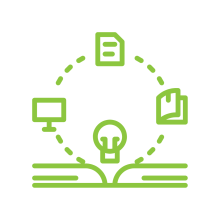
Food Activist Toolkit
So, what's a food activist? Simply put, food activists are passionate individuals who fight for fair, sustainable, and healthy food systems. They tackle issues like food insecurity, environmental impact, and food justice. In a world where not everyone has access to nutritious food and our food production often harms the planet, food activists play a crucial role. They raise awareness, influence policy, and drive change at both local and global levels. We need food activists to help create a more equitable and sustainable food future for everyone. Let's get started!
Know your sources
Understanding the credibility of sources is crucial for effective campaigning. Not all sources are created equal, so it’s essential to identify reliable information and distinguish it from misinformation.
How to identify a credible source?
Finding trustworthy data and research to support your campaigning work is important. For exploring a topic, consider using a mix of primary, secondary, and tertiary sources. As you conduct deeper scholarly research, academic journals and books generally provide the most credible and reliable information.
Try applying the CRAAP Test to evaluate sources:

Evaluating web sources
- Examine the URL: Pay attention to the domain extension to understand the type of website you're visiting.
- Be cautious of language: Watch out for vague terms, buzzwords, or subjective writing that may lack objectivity.
- Demand evidence: Critically analyse information that lacks citations or supporting evidence.
When using social media posts, blogs, or personal websites for research, keep in mind they offer insights based on personal views. Be cautious as these sources may not provide the reliability needed to support your research and advocacy work.
For example: Wikipedia is not considered a reliable source as it can be edited by anyone at any time. However, it can be a good starting point for general information and finding other sources.
Evaluating news
It is also important to note that not all news providers offer unbiased information. Here's how you can identify reliable sources:
- Check the Reputation: Look for news provider known for journalistic integrity and a commitment to unbiased reporting. Reputable sources often have established editorial standards and fact-checking processes.
- Multiple Sources: Cross-check information across multiple reliable sources.
- Fact-Checking Website: Use fact-checking websites like Full Fact to verify claims and debunk misinformation.
- Academic Journals: Websites like Google Scholar can help locate relevant academic papers.
By applying these guidelines, you can navigate sources more effectively and identify information that is trustworthy and suitable for your research or advocacy work.
Key facts on food issues
In our efforts to address food system challenges, essential facts and statistics on food insecurity and poverty serve as crucial references for discussions, presentations, and written materials. Ensure your data is reliable and impactful by using reputable sources and methodologies.
Here are some examples of our facts and statistics on food issues:
- Food Insecurity Tracking: Information on the levels and trends of food insecurity.
- Food Prices Tracking: Monitors changes and trends in food prices.
- Kids Food Guarantee Dashboard: Insights into children's access to healthy food.
- Plating Up Progress | Food Foundation: A dashboard for investors, government entities, and businesses to assess progress made by various companies in the food sector.
These facts provide an overview of today's food system-related challenges, equipping you with the knowledge to effectively support your campaigns and initiatives.
Continuous learning
There’s always more to learn! Whether it’s through reading, online courses, or workshops, there are endless ways to improve your skills and knowledge. Stay curious and continue to grow as an activist. The more you learn, the more effective your efforts will be!









